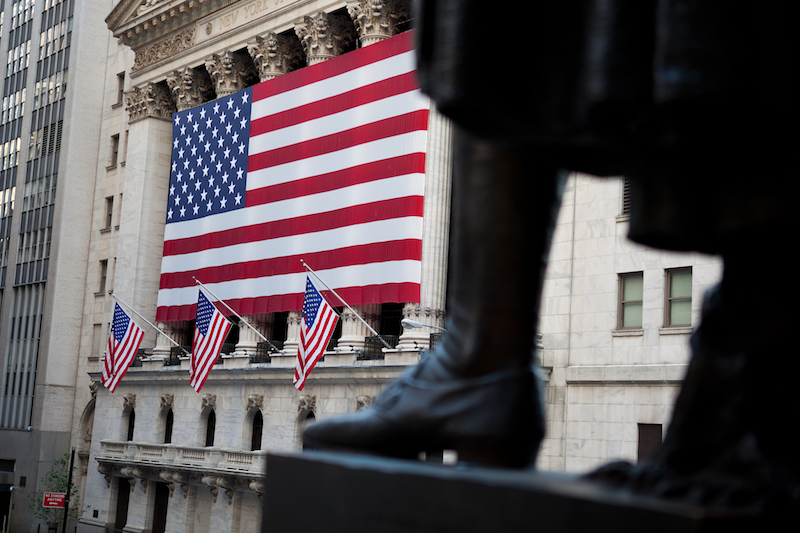
Critics of CFPB’s arbitration rule are wrong about who bears the harms of forced arbitration.
This July, the Consumer Financial Protection Bureau (CFPB) issued a final rule banning financial institutions from preventing customers from joining class action lawsuits. After a push by the Trump Administration and Wall Street, Congress narrowly passed a resolution of disapproval under the Congressional Review Act, nullifying the CFPB’s action.
Before the CRA vote, Acting Comptroller of the Currency Keith Noreika wrote an op-ed blasting the rule, and the U.S. Department of the Treasury released a report arguing that restricting arbitration would hurt consumers. The U.S. Chamber of Commerce published an article decrying the rule, and leading financial industry attorneys Alan Kaplinsky and Mark Levin argued for wiping away the CFPB’s “untethered public policy…that benefits only class action lawyers.”
Although the Trump team and Wall Street lawyers succeeded in their efforts to persuade Congress to vote to erase the rule, the simple reality is that repeal of the CFPB rule was done for large financial institutions and will be to the detriment of ordinary consumers.
Last month, Equifax announced that hackers had breached the personal information of 145 million customers. Despite knowing about the breach since the summer, Equifax waited months to tell the public about the hack. Equifax had an arbitration clause that would have prevented consumers from getting their day in court, but the company yielded to public pressure and announced it would not compel arbitration—or so it says, for now.
But some companies have been more intransigent. Wells Fargo has admitted that it opened 3.5 million fake accounts that consumers never asked for and never wanted. Many customers of the bank were charged late fees on accounts they did not even know existed, threatening their credit scores and raising their borrowing costs. Few scandals could be riper for a class action: An extremely large number of people were harmed by the same company from a pattern of similar actions. But Wells Fargo has an arbitration clause preventing customers from joining class actions, and the company is trying desperately to shunt each consumer into an individual arbitration.
The reason companies favor arbitration is simple: Arbitration is a big money saver for them. Arbitrators are bound by no precedent or federal rules of procedure, and their decisions are not appealable. Arbitrators’ customers are large companies—like Wells Fargo—who they rely on for business, yet somehow arbitrators are expected to be neutral when the company paying them appears before them in a dispute. Not surprisingly, a study carried out by the CFPB found that consumers obtained relief from arbitrators in only 32 out of 341 cases.
The clandestine nature of arbitration is an additional societal cost of arbitration. Because Wells Fargo was able to keep victims out of court by diverting their claims to arbitration proceedings which ended in non-disclosure agreements, the fake accounts scandal stayed hidden for years.
Critics of the rule make a number of spurious arguments to draw attention away from corporate malfeasance. Noreika, the Comptroller of the Currency, writes that small banks “are already struggling to compete with big banks and nonbank financial service providers.” Yet the CFPB study shows that small community banks and credit unions are much less likely to have arbitration clauses in their credit card contracts than are larger financial institutions. If the rule hurts banks with such clauses, then logically it will actually help smaller institutions gain market share.
The notion that the arbitration rule could wreak havoc on the industry is belied by the evidence. In 2009, three of the largest issuers of credit cards—Bank of America, Capital One, and Chase—agreed to remove their arbitration clauses. If Noreika is right that the rule would force financial institutions to raise the cost of credit, then surely consumers would have by now fled the institutions that dropped these clauses in 2009.
As it turns out, in 2009, Chase was the second largest issuer of credit cards based on purchase volume, while Bank of America was third and Capitol One fifth. In 2016, Chase was still second, Bank of America still third, and Capital One still fifth. Discover, which was ranked sixth, only saw its purchase volume rise from $100 billion to $120 billion between 2011 and 2016. Capital One’s purchase volume, on the other hand, skyrocketed from $115 billion to $240 billion over that same time period. Not surprisingly, CFPB Director Richard Cordray has called out Noreika’s claim that interest rates would rise nearly 3.5 points as “demonstrably bogus.”
Although banks that drop arbitration are not hurting, individuals who find they signed away their rights are less fortunate. Charles Beard was an American solider fighting in Iraq who fell behind on some car payments while he was on tour in Iraq. His car was repossessed in violation of federal law; the men taking the car told his wife she would go to jail if she did not hand over the keys.
Santander Consumer, from which Beard had taken out his car loan, had an arbitration clause in its contract. As the New York Times has reported, he tried to join a class action, but instead was forced into arbitration. Contrary to the view that arbitration is a much more rapid process, Beard fought for four years before he eventually was able to receive some redress—but even then he did not receive anything for the illegal repossession. Yet Beard would qualify as one of the less than 10 percent of individuals who won at least some relief in arbitration.
The most common refrain from opponents of the rule is that it would only benefit trial lawyers. Unless Beard changes career paths, this seems not to be the case.




